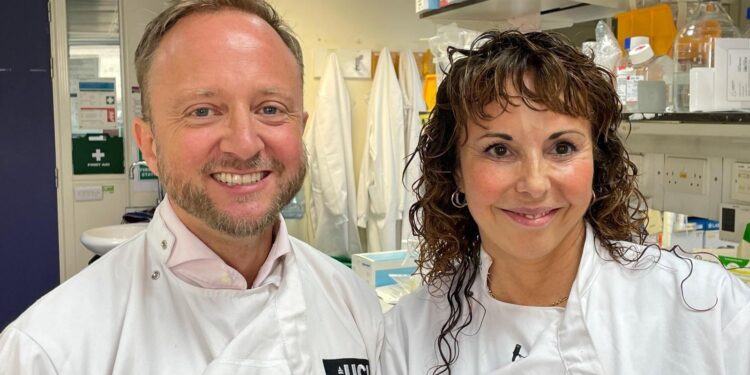Researchers have achieved the first successful treatment of Huntington’s disease, reporting a 75% reduction in disease progression that could extend patients’ quality of life by decades, according to results from a clinical trial led by University College London.
The gene therapy treatment, delivered through 12 to 18 hours of precise brain surgery, represents a breakthrough for a hereditary disease that typically appears in patients’ 30s or 40s and proves fatal within two decades.
Professor Sarah Tabrizi, director of UCL’s Huntington’s Disease Centre, described the results as “spectacular,” noting that researchers “never in our wildest dreams would have expected a 75% slowing of clinical progression.”
The treatment means patients’ expected one-year decline now takes four years, potentially providing decades of additional functional life. One previously medically retired patient has returned to work, while others expected to need wheelchairs remain walking.
Huntington’s disease affects approximately 75,000 people across the UK, US, and Europe, with hundreds of thousands more carrying the genetic mutation that guarantees they will develop the condition. The disease combines symptoms resembling dementia, Parkinson’s, and motor neurone disease.
The therapy targets the root cause: a mutation in the huntingtin gene that produces toxic proteins killing brain cells. Using a modified virus as a delivery system, surgeons inject genetic material into two specific brain regions, the caudate nucleus and putamen, using real-time MRI guidance.
The delivered genetic instructions turn neurons into factories producing microRNA designed to intercept and disable messages for creating mutant huntingtin protein, thereby reducing toxic protein levels in the brain.
Trial data involving 29 patients showed not only slowed disease progression but evidence of brain cell preservation. Neurofilament levels in spinal fluid, indicating brain cell death, actually decreased rather than showing the expected one-third increase.
Professor Ed Wild, consultant neurologist at the National Hospital for Neurology and Neurosurgery, expressed emotional responses to the results. “There was every chance that we would never see a result like this, so to be living in a world where we know this is not only possible, but the actual magnitude of the effect is breathtaking,” he said.
The treatment appears permanent since brain cells aren’t naturally replaced like other body tissues. Some patients experienced inflammation-related headaches and confusion that resolved or required steroid treatment.
Jack May-Davis, whose family has been devastated by Huntington’s across three generations, described the breakthrough as “absolutely incredible.” The 30-year-old barrister’s clerk, who carries the faulty gene, watched his father Fred decline from late-30s symptoms until death at 54.
“The breakthrough has left me overwhelmed and able to look to a future that seems a little bit brighter,” May-Davis said.
UniQure, the company developing the therapy, plans to apply for US licensing in early 2026 with launch later that year. UK and European discussions begin next year, though initial focus remains on American markets.
The treatment will likely be expensive and require highly specialized surgery, limiting initial availability. However, Professor Wild noted that gene therapies’ long-term impact can justify high costs, citing NHS approval of a £2.6 million haemophilia B treatment.
Tabrizi emphasized this represents “the beginning” and will enable development of treatments reaching broader patient populations. She’s already planning prevention trials for people carrying the gene but not yet showing symptoms.







